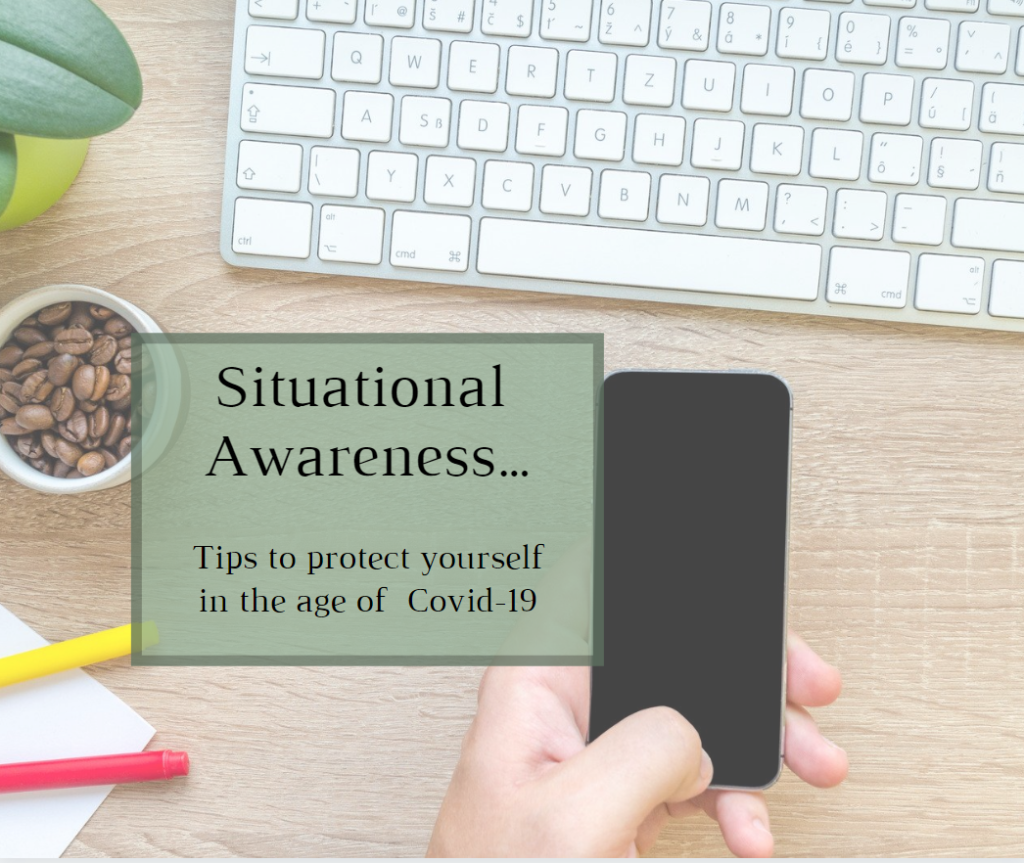By: Elizabeth K.B. DiPietrantonio, J.D., Associate Advisor
My parents used the phrase “situational awareness” a lot with me while I was growing up; okay, they still use it. In non-work situations, I am often easily distracted. I get excited about whatever is happening and become a bit, well, scattered. I tend to lose things i.e. keys, phones, wallet, and once even my car (that is another story!). Situational awareness is something I tell myself continuously. I have to work to focus on a situation and my surroundings to make sure I am not so caught up in whatever is happening that I misplace things, get lost, become vulnerable etc.
I think it is fair to say we are all a little distracted right now. Covid-19 is an overwhelming situation and it is very difficult to maintain awareness. I am fortunate enough to be able to work at home. I know I am distracted just trying to keep up with all the different mandates, my step-daughter’s home school assignments and general fear and anxiety. I cannot even imagine what the brave essential workers on the front lines are dealing with in terms of just trying to survive the day. Those who have lost their jobs or fear for the safety of a sick loved one are also in an unimaginable situation. Unfortunately, when our defenses are down, scammers and hackers are out taking advantage of the government’s financial response to the pandemic. These criminals will use e-mail, text messages, social media and phone calls with the goal of taking your money or stealing your identity. Since January 1st the Federal Trade Commission (FTC) has received over 18,000 reports related to Covid-19 fraud. They have reported a loss of millions of dollars from victims. It is extremely important, now more than ever, to maintain situational awareness and protect yourself. Below are a few tips to help you defend yourself:
- Government agencies will use regular mail to contact you- Agencies like the IRS and Social Security will always contact you by mail. No matter how authentic a phone call, email or text from one of these agencies may seem it is not legitimate. The tactic of preying on our fear is used often in these situations. In phone calls especially the scammer can be highly convincing. If you receive one of these calls hang up the phone and do not engage the person on the other end of the line.
- Government agencies will NEVER do the following: Contact you to ask for money or for your personal information, ask you to pay them by Western Union, MoneyGrams, gift cards, or ask you to send cash by mail. A lot of letters may appear to be authentic but ask you to provide your social security or bank account number. Additionally they may ask you to pay by the means above. Asking for any of this information is a tell that this is a scam.
- NEVER respond to e-mails, texts or phone calls asking you to provide or verify your personal information. Keep in mind tip number one. A legitimate government agency will never contact you except by letter.
- ALWAYS verify – If you think the contact is legitimate VERIFY the correct phone number and call the agency or business directly. Often these letters will provide fake numbers. Lookup the correct phone number for the agency and contact them. Remember all websites for legitimate government agencies and state websites end in .gov.
- NEVER pay money to get money. Many of these scams say things like please deposit x amount so we can verify your bank account. This is a way to gain access to your account. Do not fall for it.
It can be incredibly frustrating to deal with the IRS or unemployment. Many people are waiting for much needed funds. It is very easy to let down your defenses. There is so much going on in the world that we are incredibly vulnerable. Remember to pause and think about the situation. Use your awareness and ask yourself does this really seem correct?


